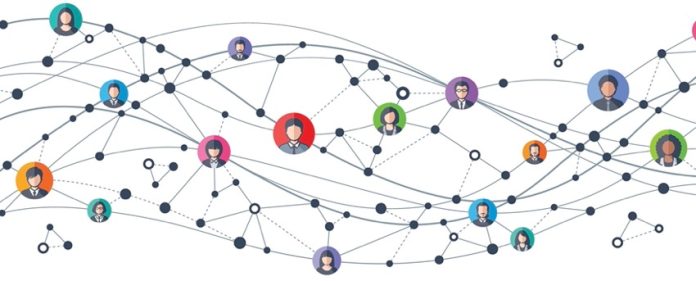An author of young adult fiction and romance novels isn’t an obvious source of insight on what makes for effective B2B partnerships, but that’s what Sarah MacLean has provided. MacLean, the author of New York Times bestselling books such as “A Rogue By Any Other Name” and “Never Judge a Lady By Her Cover,” stated in an interview, “The best partnerships are not dependent on a mere common goal, but on a shared path of equality, desire and no small amount of passion.”
This report on building better B2B partnerships — a group that we define as including vendors, channel partners, contract workers and employees — hopefully provides numerous useful ideas on how to assess prospective collaborators and how to foster and maintain mutually beneficial partnerships. In many ways, however, MacLean’s summary of what makes for a good union succinctly encapsulates the underlying concept of all the observations presented here.
The Power of Partnerships
Seventy-one percent of respondents to DemandGen Report’s “2024 Channel Partner Marketing Benchmark Survey” anticipated that partner-generated revenue will climb more than 10% this year.
Foundry, a global provider of media and event services, marketing technology and intent data for B2B technology marketers, surveyed more than 350 marketing leaders in the IT industry and found that 68% view partner marketing as a necessary tactic that provides great value. This year, an average
of 37% of marketing budgets are being spent on these activities, up from 28% in 2014, Foundry reports.
Many companies go to market using a combination of internal sales reps and channel partners. The latter provides access to prospects that a company otherwise would not know about or have the capacity to reach. A report from Affise, which sells software for partnership management, states that in a world oversaturated with marketing messages, channel partners can provide a “gentle marketing” approach for your brand — in effect, a third-party referral.
Hinda Incentives, a provider of recognition and reward programs, employed a combination of internal sales and channel partners before shifting several years ago to a channel partners-only strategy. Theresa Thomas, vice president of strategic solutions at Hinda, estimates the company has accumulated between 750 and 1,000 channel partners, 350 of which work regularly with them.
“We rely on our channel partners to be the local presence, the local intelligence and someone who has feet on the street with the client,” Thomas said. “We could never reach as many prospects or clients as we do without those local partners.”
Initially, Hinda worked with channel partners who had experience in the non-cash incentives industry. Many worked with large purveyors of recognition programs before deciding to go into business for themselves. Hinda still uses some of those partners to sell its programs, but it shifted several years ago to using primarily promotional product resellers — reps who sell inexpensive branded merchandise to companies. This provided entrée to new markets, a key benefit of channel partnerships.
Hinda works with its resellers in a variety of ways. Many use the company’s full-service capabilities, including an online platform that tracks performance and provides redemption for merchandise and travel rewards. Others have their own technology and use Hinda strictly for fulfillment.
Hinda’s resellers who are in the promotional product industry are asked to identify new prospects and handle the initial conversations. Hinda business development members are brought in later in the process to explain the more intricate details of its platform capabilities and to help close the sale.
Channel partners who have extensive experience in the non-cash incentive industry are left to close sales independently.
Training Is Vital
Thomas said most of the promotional product reselling partners use Hinda’s full-service capabilities. Hinda created a partner portal for its resellers that goes well beyond the customary product training and marketing support materials.
Hinda’s business development team created sales support materials such as talking points for prospects at different stages of the buying process, case studies and on-demand training videos. The company also provides as many as eight live web presentations covering a wide range of sales strategies.
“You can’t underestimate the value of educating your channel. It’s critical that people understand your product and service, and that you continue to educate them over time,” Thomas said.
Jonathan Evans, CEO of Discovery ADR a UK-based consultancy that works with businesses primarily in Europe and North America, said leading-edge companies are investing in skills training for channel partners and not simply focusing on providing product information. His company helps client businesses with structural transformation, recruitment and development.
Investing in improving your channel partners’ consultative selling skills will pay off through increased revenue back to your business, Evans said. What’s more, the most attractive channel partners are highly sought after and can assess their options just as skilled workers do when deciding whether to accept a job offer. Businesses must make themselves attractive to any prospective partner they hope to reach agreement with. A well-structured sales training program that enhances selling skills as well as providing product knowledge is a big step in that direction.
“More job seekers are choosing the organization they go to based on the career progression and career path. Channel partners are no different. They ask, ‘How are you going to develop me?’ You can never divorce recruitment from development, and it must happen quickly,” Evans said. “If they get six to nine months in and things aren’t working properly, they start to think they made a mistake and that it may not be their issue.”
Motivating Your Channel Partners
It’s one thing to provide sales training, it’s something else entirely to get channel partners to complete it. A challenge with channel partners is they are under separate management and able to make decisions independently unless you write requirements into an agreement.
Hinda is in the business of motivating others. Not surprisingly, it uses rewards to motivate its channel partners to complete training as well as other steps that lead to a sale.
Partners earn points that can be redeemed for non-cash rewards for completing training, establishing new prospects and scheduling meetings with them.
“It takes a commitment just as with any sales position. If they aren’t willing to put in the effort to learn about our products and services, they will not be successful talking to a customer. In fact, they often won’t even try to talk to a customer. We have a lot of partners who don’t complete the training and never make a sale,” Thomas said.
The View from the Partner’s Side
Ben Griffith is a 20-year veteran of the non-cash reward and recognition industry who worked in sales for a large East Coast provider of those programs. In 2018, Griffith left his job and its six-figure salary to start his own company, Level Up Engagement, in the same performance improvement space. He had strong relationships on both the client and supplier side. Who he chose to partner with would be critical to a successful launch for his new company.
Hinda was one of the first suppliers Griffith entered a partnership with. Today, he works with a dozen or so partner companies that help provide his clients with sales incentive, B2B channel and employee engagement strategies that include group travel, mid-level merchandise programs, meetings and events, individual travel, gift cards and promotional products. In assembling his channel partner roster, Griffith said corporate culture is always top of mind.
“Factors I consider when selecting a partner include how the company is run, the company’s reputation, types of services offered, company size, the company’s expertise, B2B channel experience, clientele and technology capabilities,” he said. “The best partnerships are built on trust, integrity, open communication, appreciation, teamwork and a shared focus on putting the client first. Level Up enters into partner agreements with the intent of maintaining those relationships and growing business together for decades.”
Angelo DiSpirito III, founder of Rhode Island-based Val-U Solutions, another longtime channel partner of Hinda’s, said he has ended partnerships because change of leadership at a partner company led to changes in corporate culture and philosophy.
“With a good B2B partner, it’s not my way or the highway, it’s sharing our way,” DiSpirito said.
Knowing that no single company can be all things to all people, Level Up has developed a good understanding of the capabilities and limitations of each vendor with an eye toward pairing a client’s needs with a vendor’s strengths.
A vendor that might be the perfect fit for Client A might be the wrong fit for Client B due to factors like the client’s budget, program type needed, the vendor’s experience, geographic reach, customization requirements, etc. By asking a series of questions that help refine the project scope, Level Up considers each vendor option and is able to determine which one is best suited for the established parameters.
Theresa Thomas said that’s why Hinda maintains communication with all the channel partners it has developed relationships with through the years and not just those that have brought recent business to Hinda.
“We continue to market to them because, one day, they are going to have a client who has a need that makes them think of us. Just as you may have a long sales cycle to sell something to a new customer, sometimes it’s a long sales cycle to get your reseller to engage,” Thomas said.
Writing for Forbes.com, Chris Barbin, CEO and founder of Tercera, an investment and advisory firm, states, “No company, no matter how innovative, can achieve sustained success entirely on its own. By collaborating with the right partners, companies can tap into new customers, expand their offerings and build stronger market presence. With the right ecosystem in place, businesses can focus on innovation, knowing that their partners will deliver the value, expertise and customer support that fuel success.”






